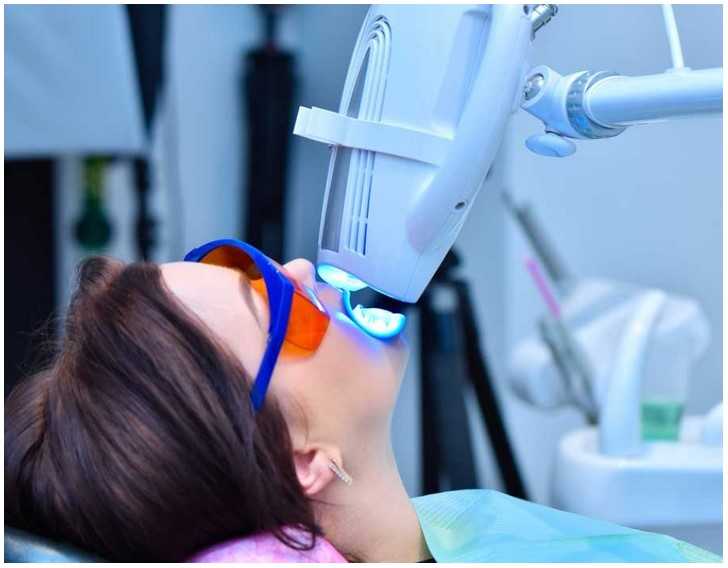Diode Lasers in Dentistry: Applications and Advancements in Dental Laser Technology

Diode lasers have revolutionized the field of dentistry, providing dentists with a powerful and precise tool for a variety of dental procedures. Diode lasers are used in a variety of dental applications, including cavity preparation, soft tissue management, and whitening. The use of diode lasers in dentistry has allowed for more precise and efficient treatments, with less pain and discomfort for patients. Additionally, advancements in diode laser technology have enabled dentists to perform more complex procedures with greater accuracy and safety. This article will discuss the applications of diode lasers in dentistry, as well as the advancements in diode laser technology that have enabled dentists to perform more complex procedures.
Exploring the Benefits of Diode Lasers in Dentistry: How Diode Lasers are Revolutionizing Dental Care
Diode lasers are revolutionizing the field of dentistry, offering a wide range of benefits to both patients and practitioners. This article will explore the advantages of diode lasers in dental care, from improved patient comfort to enhanced accuracy and precision.
Diode lasers are a type of laser that emit a beam of light at a specific wavelength. This wavelength is absorbed by the tissue it comes into contact with, allowing the laser to be used for a variety of dental procedures. Diode lasers are particularly useful for soft tissue procedures, such as gum reshaping, crown lengthening, and the removal of lesions.
One of the primary benefits of diode lasers is improved patient comfort. The laser beam is precise and gentle, allowing for a minimally invasive procedure with minimal discomfort. This is especially beneficial for patients who are anxious about dental procedures. Additionally, diode lasers can reduce the need for anesthesia, as they can be used to perform procedures with minimal bleeding.
Diode lasers also offer enhanced accuracy and precision. The laser beam is highly focused, allowing for precise and accurate results. This is especially beneficial for procedures such as gum reshaping, where the laser can be used to precisely remove excess tissue. Additionally, the laser beam can be used to precisely target and remove lesions, reducing the risk of damage to surrounding tissue.
Finally, diode lasers can reduce the amount of time required for certain procedures. The laser beam is highly efficient, allowing for faster and more efficient procedures. This can reduce the amount of time a patient needs to spend in the dental chair, as well as the amount of time required for recovery.
In conclusion, diode lasers are revolutionizing the field of dentistry, offering a wide range of benefits to both patients and practitioners. From improved patient comfort to enhanced accuracy and precision, diode lasers are an invaluable tool for dental care.
Examining the Latest Advancements in Diode Laser Technology for Dentistry: What New Applications are Available?
The use of diode lasers in dentistry has become increasingly popular in recent years, due to their ability to provide precise and efficient treatments. Diode lasers are now being used for a variety of dental applications, including cavity preparation, soft tissue management, and tooth whitening. This article will examine the latest advancements in diode laser technology for dentistry and explore the new applications that are now available.
Diode lasers are highly versatile and can be used to perform a variety of dental procedures. They are capable of cutting through hard and soft tissue with precision and accuracy, making them ideal for cavity preparation and other dental treatments. Diode lasers can also be used to remove excess gum tissue, reshape gums, and treat periodontal disease. In addition, they can be used to whiten teeth, remove stains, and reduce sensitivity.
The latest advancements in diode laser technology have made it possible to perform more complex procedures with greater accuracy and precision. For example, diode lasers can now be used to perform root canal treatments, as well as to treat periodontal disease and other gum diseases. They can also be used to perform cosmetic procedures, such as reshaping gums and whitening teeth.
Diode lasers are also being used to treat a variety of oral health conditions, such as cold sores, canker sores, and oral thrush. They can also be used to treat temporomandibular joint (TMJ) disorders, as well as to reduce snoring and sleep apnea. In addition, diode lasers can be used to treat oral cancer and other oral diseases.
The latest advancements in diode laser technology have made it possible to perform more complex procedures with greater accuracy and precision. This has enabled dentists to provide more effective treatments for their patients, while also reducing the amount of time and money spent on treatments. As a result, diode lasers are becoming increasingly popular in the field of dentistry.
In conclusion, the latest advancements in diode laser technology have made it possible to perform a variety of dental procedures with greater accuracy and precision. This has enabled dentists to provide more effective treatments for their patients, while also reducing the amount of time and money spent on treatments. As a result, diode lasers are becoming increasingly popular in the field of dentistry.
Conclusion
Diode lasers have revolutionized the field of dentistry, providing a safe and effective way to perform a variety of dental procedures. With the advancements in dental laser technology, diode lasers are now being used for a wide range of applications, from cavity preparation to soft tissue management. The use of diode lasers in dentistry has allowed for more precise and efficient treatments, resulting in improved patient outcomes. As the technology continues to evolve, diode lasers will continue to be an important tool in the dental office.